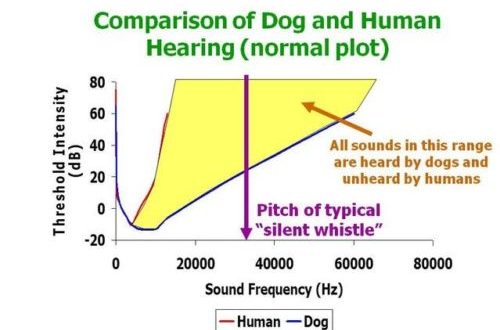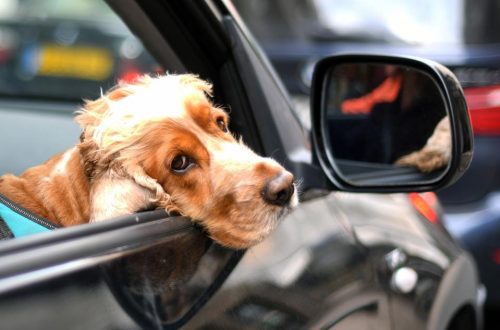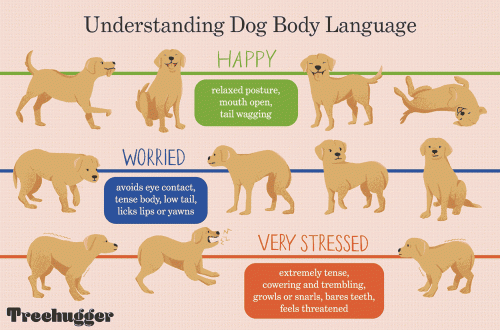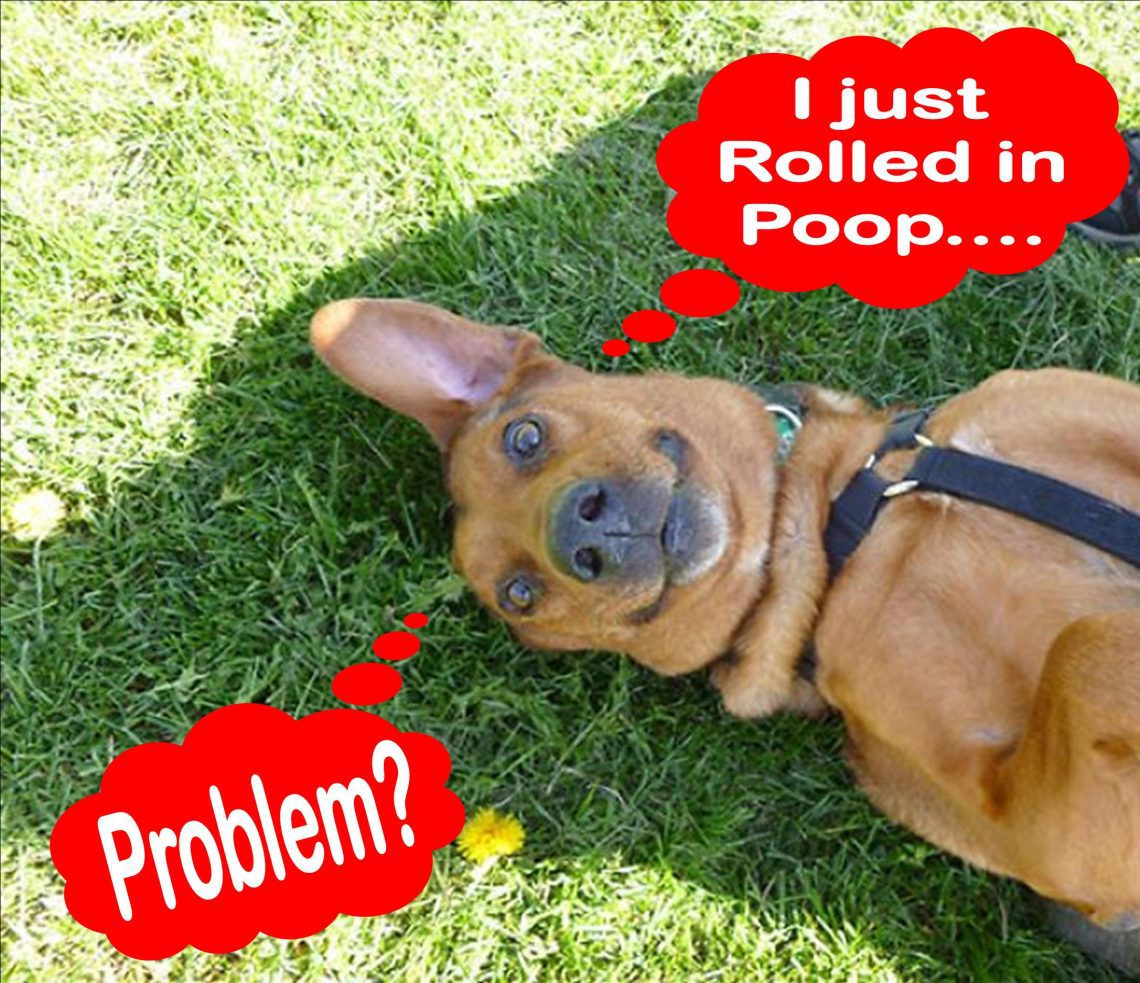
Why do dogs wallow in stinky stuff?
Many dog owners are frustrated by their pets’ habit of wallowing in stinky stuff while walking. Why are dogs attracted to smells that are so disgusting to us?
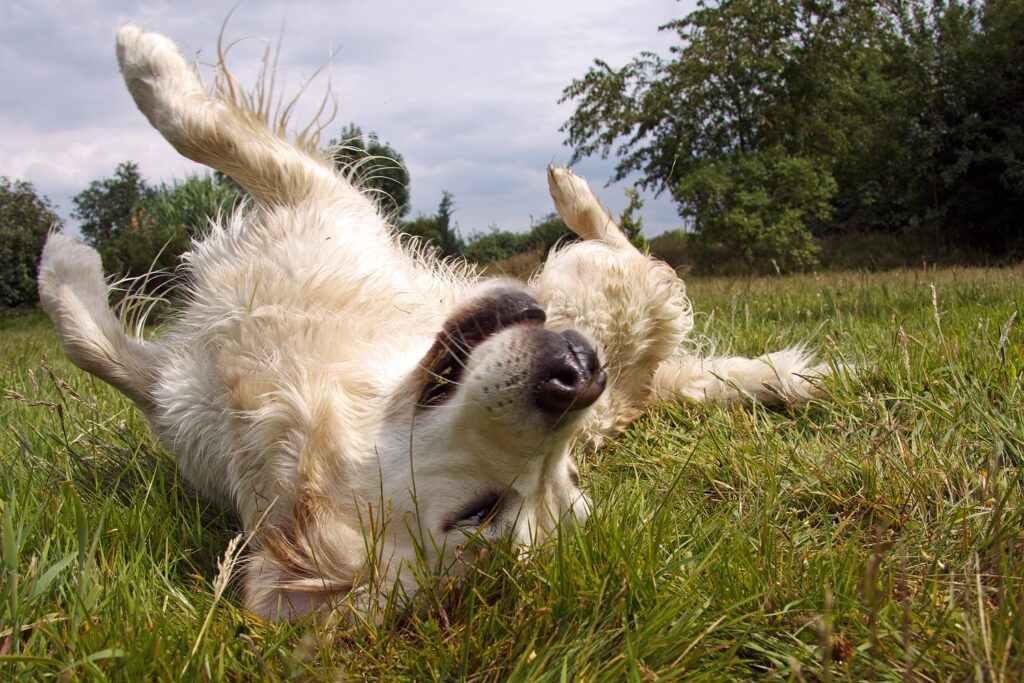
Dogs are attracted to other people’s excrement, and rotten fish, and carrion, and much more that can cause us at least a grimace of disgust.
There is no definitive answer to the question of why dogs love to wallow in smelly muck so much. However, scientists put forward several hypotheses.
Contents
- Dogs wallow in stinky stuff to mask their scent while hunting.
- Dogs wallow in stinky stuff to pretend to be someone else
- Or maybe animals rub against someone else’s smell to leave their own?
- Wallowing in smelly muck is a way to convey information to relatives
- Strong smell – something like a “uniform”
- What other versions are there?
Dogs wallow in stinky stuff to mask their scent while hunting.
Indeed, wolves also like to rub smells into their fur that make us sick. But the version that they do this to deceive prey and disguise themselves is doubtful.
Canadian scientists conducted an experiment. They offered groups of wolves different options for both natural and artificial scents, and studied the preferences of gray predators.
Surprisingly, the excrement of potential prey (horses or sheep) did not interest the wolves at all. As well as different types of food. But artificial smells (motor oil, perfumes, etc.) came to their liking.
And then the question is: how can you mask your presence with the help of smells that simply do not exist in natural conditions? This is at least irrational. And animals are rational beings.
The second most attractive to wolves were the smells of the feces of larger predators (cougars and bears), which also does not correspond to the original theory.
Pat Goodmann, a wolf behavior researcher in Indiana, found that wolves prefer the scents of either other canids or felines. That is predators.
In addition, wolves rarely ambush hunt, more often they pursue prey, and it does not matter to them whether they are visible. Therefore, the version of disguise does not look very consistent.
Dogs wallow in stinky stuff to pretend to be someone else
Another version of scientists is as follows. When canids wallow in the feces of other predators (such as bears or cougars), they pretend to be something more dangerous.
Max Allen, a scientist at the University of Wisconsin, studied gray foxes. And I found that these animals regularly visit the areas marked by cougars to rub against the marks. Allen suggested that this helps the foxes avoid encounters with coyotes. They say that the smell of the cougar gives the fox the opportunity to hide from the coyote, which would attack the fox, but would not dare to pursue the cougar.
But after all, wolves are quite successful and large predators, why should they use other people’s smells?
Or maybe animals rub against someone else’s smell to leave their own?
The version of Max Allen is not shared by another scientist, Briton Stephen Harris (University of Bristol). He is convinced that the purpose of the animal is not to collect other people’s smells, but to distribute their own. And the unfamiliar scent simply encourages dogs to rub against the same places to leave their own marks there.
However, dogs, when wallowing in “stinkers”, are rarely limited to leaving their smell. They fall out so that the whole torso smells! So this version also does not look completely convincing. In any case, it does not explain all cases.
Wallowing in smelly muck is a way to convey information to relatives
This is another version. According to her, wolves, for example, wallow in odorous substances to tell their relatives where they have been. And Erich Klinghammer, the creator of the Wolf Park, suggests that wallowing in filth is a message to other members of the pack: “there is so much delicious!”
For example, scientists have observed how wolves, having found large prey, not only eat it, but also rub, roll around, etc. And, perhaps, they make it clear to friends that where they came from, there is something to profit from.
Hyenas also sway in the carrion – after that, their relatives show them active signs of attention.
Ethiopian wolves also like to roll on the ground after a meal. However, they are not averse to using human excrement as “spirits”.
Strong smell – something like a “uniform”
There is another version.
A study of Canadian wolves has shown that when a pack finds a strong-smelling place, the leader goes first, and then the rest follow suit. As if the leader determines how all the members of the pack will smell.
Similar behavior is observed not only in wolves, but also in coyotes, as well as in foxes.
Female wild dogs roll on the ground where the marks of the males are left if they want to join them.
And sometimes dogs rub against each other.
What other versions are there?
And this is not all hypotheses!
Behavioral veterinarian Stanley Koren believes that dogs try to stand out with such behavior. Like people wearing bright clothes.
Muriel Brasseur, a spokesman for the Animal Behavior Research Center at Oxford, believes that wallowing in filth gives dogs a strong rush of dopamine, the “satisfaction hormone.” So it’s not only echoes of survival behavior, but also… just fun!
However, the owners of dogs from this is not easier. But, since we have loved dogs, we must continue to love them even dirty. And smelly. Wash and love. Such is the fate of the dog owner.



